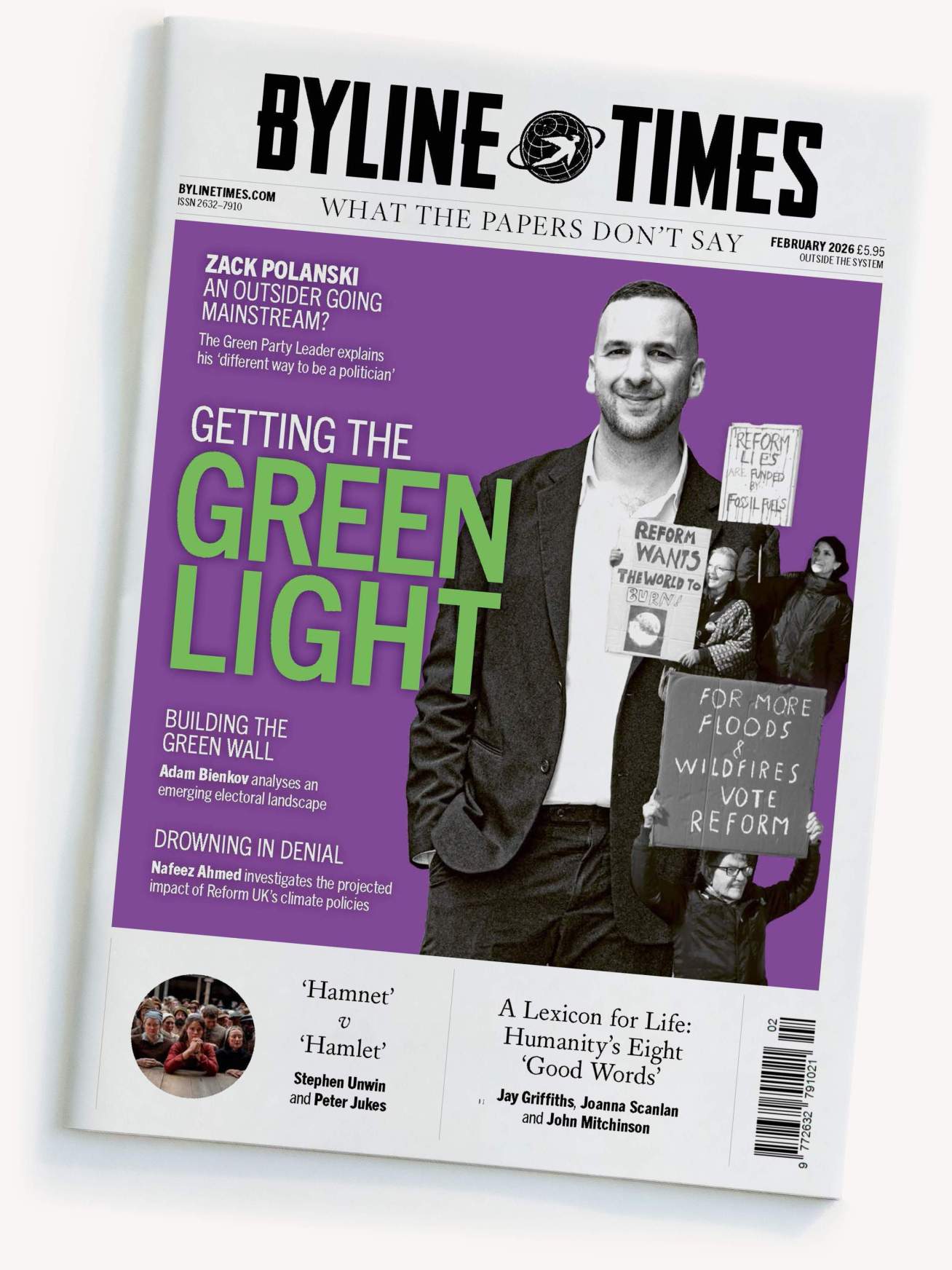
Read our Monthly Magazine
And support our mission to provide fearless stories about and outside the media system
The UK has become too dependent on Elon Musk and his Space X company for the success of its space programme, and must urgently seek greater independence from it in order to stop the “politicisation” of these services by the far-right billionaire, a new Parliamentary report has warned.
The report, by the House of Lords’ UK Engagement with Space Committee, discloses that half of Britain’s satellites are now dependent on Musk’s company and warns that the UK’s capacity now risks being politicised as a result.
Musk currently spends much of his time on his X platform, which he owns, where he regularly attacks the UK’s diversity and race policies and predicts civil war in the UK.
He is also a financial supporter and backer of the convicted far-right British criminal Tommy Robinson.
However, the UK Government has so far resisted calls to distance itself from Musk’s companies, with ministers refusing demands to come off of his ‘X’ social media platform. This reluctance could prove particularly challenging when it comes to the UK’s space infrastructure.
The report by peers warns Musk could use his dominance to crowd out competitors in satellite communications, before politicising the UK’s reliance upon his companies, saying that: “This reliance is challenging in the context of increased demand for SpaceX launch services and the potential politicisation of the Starlink service”.
The report calls for the UK Government to reduce its reliance on Space X and use other launch sites abroad and build sites in the UK to launch satellites. One is already under construction in Shetland. The UK last launched its own satellites in 1971.
Under the title “The Space Economy, Act Now or Lose It” the committee hears from witnesses calling for the doubling of spending on space industries from £640 million to £1.2 billion, calls for the creation of a minister for space, and for much more co-ordination in Government to create a unified space programme.
Brexit Costs
The report also finds that the UK has lost out in European co-operation because of Brexit.
The peers find that “As part of the UK’s withdrawal from the EU, it ceased to be a part of the EU’s space programme. The UK no longer participates in the Galileo programme, which means UK firms cannot access industrial contracts and UK institutions cannot use Galileo’s secure functionality, which provides an enhanced service for military and critical infrastructure purposes (though individual and business use of Galileo remains permitted).”
The committee suggests the UK could benefit by rejoining Galileo and a new programme called IRIS, the Infrastructure for Resilience, Interconnectivity and Security by Satellite, which aims to connect some 290 satellites across Europe
The report also warns that Britain could lose out in the latest planned developments by the European Union which include setting up a big expansion of space investment aimed at ending dependence on the United States for member states and greater military co-operation using satellites. A new EU law will lay down standards for companies outside and inside the EU which companies will have to comply.
“The act will require UK-based providers of space-based data and services to comply with extensive and relatively onerous conformity requirements. The European Space Policy Institute estimated the potential cost burdens of the legislation to be 10% on satellite manufacturers and 20% on launch services firms”, it states.
ENJOYING THIS ARTICLE? HELP US TO PRODUCE MORE
Receive the monthly Byline Times newspaper and help to support fearless, independent journalism that breaks stories, shapes the agenda and holds power to account.
We’re not funded by a billionaire oligarch or an offshore hedge-fund. We rely on our readers to fund our journalism. If you like what we do, please subscribe.
The UK is still a leader in the sector, with 60 UK universities doing space research and the UK companies specialising in new satellites and reducing debris in space. There is also a growing market in the City for insuring satellites.
But the country is suffering from a skills shortages in space development and piecemeal funding given to small firms rather than long term funding for bigger projects.
The committee state that far from being the preserve of astronauts and rockets, space technology underpins daily life on Earth – from GPS satellites guiding transport networks and smartphones, to banking systems relying on satellite timing to secure global transactions, to weather satellites supporting farmers. Climate scientists and urban planners use space data to track emissions and design sustainable cities.
The country also has a big centre based in Harwell for space research but it cannot expand easily because the land next to it is contaminated by nuclear waste.
Despite this, the peers are optimistic for the future of space technology in the UK.
Labour peer Baroness Cathy Ashton said: “Only the most strategic and forward-looking nations will capture the economic and scientific rewards of this new space age. With the right leadership, co-ordination, and investment, the UK can be there. Space is transforming the world, and our report found much to be positive about. Britain should play a role in leading that transformation or risk being left behind.”

